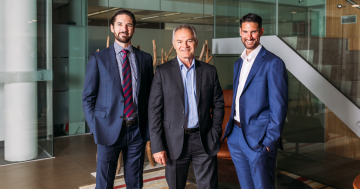
Work should start now on navigating the incoming changes impacting NDIS and disability service organisations. Photo: Miodrag Ignjatovic.
There’s hope that expected NDIS changes will empower businesses and organisations in the industry to achieve sustainability, but work must start now if they’re to put their best foot forward, according to one expert.
In its Final Report, the Royal Commission into Violence, Abuse, Neglect and Exploitation of People with Disability made 222 recommendations on how to improve laws, policies, structures and practices in the disability space and in the Working together to deliver the NDIS report, the NDIS itself makes 26 recommendations with 139 actions to change the system that supports people with disability.
Senior manager at RSM in Canberra Kirsty McGovern Hooley says it stands to reason that ongoing changes are coming – and not a moment too soon.
“By and large, the majority of providers we speak to are doing it really tough,” she says.
“Many are struggling through financial difficulty and need supports built around their businesses.”
RSM analysis suggests the NDIS fixed pricing regime, which some providers cite as the reason behind decisions to cease NDIS support services, is based on modelling that is not fit for purpose.
“We found it was modelled on an incredibly tight level of efficiency that can only reasonably be achieved at scale,” she says.
“We’re working with businesses at the moment who realistically would need to double or even triple their services, but with no increase to overheads, in order to be sustainable long term, and to grow and pay for the management structure needed to ensure quality standards and safeguards are met.
“In other words, there’s no room for smaller operations under the current pricing scheme.”
The findings also indicate that NDIS pricing is so tightly modelled on productivity that it translates to an expectation that workers spend 92 per cent of their time on billable hours.
“That’s an incredibly high target for any industry,” Kirsty says.
“As a taxpayer, I want my money going towards things that are efficient, of course, but it’s very difficult to scale a business to achieve that.”
External market factors such as workforce shortages add to the pressure and many businesses are asking for reform sooner rather than later – but there’s plenty businesses can do to buckle up.

Senior manager at RSM in Canberra Kirsty McGovern Hooley says businesses should start building good relationships with professional advisors now. Photo: RSM in Canberra.
There has been some indication businesses can expect a shift in pricing to address market and procurement issues, but organisations should start looking closely at their own strategies and models, focusing on sustainable growth plans and workforce management.
From a service design perspective, this will involve developing their own comprehensive risk management strategies and internal audit programs. From a financial sustainability point of view, businesses should implement structures that allow them to monitor, forecast and regularly report on financial performance.
Some businesses may wish to consider diversification or restructuring entirely.
“There has been a lot of talk about closing group homes, so we would encourage any providers of disability accommodation to look at how they could be building more inclusive service models (models where people with and without disability live together),” Kirsty says.
Notably, there will be changes to support coordination and plan management that providers will need to factor in directly.
“They’re looking at introducing a national registration worker scheme which will impact compliance requirements,” Kirsty says.
“At the same time, the Quality and Safeguards Commission – the regulator for NDIS – is encouraged to shift from an education to an enforcement role.
“In short, we can expect a lot of compliance changes, increasing rules and increased pressure on businesses to monitor and report performance. There are some opportunities to be had, but there’s work ahead.”
Kirsty says businesses should also review their cyber security position after RSM found staggering statistics around the impact of cyber breaches.
“Disability providers hold deeply personal information about their participants, and ensuring the safety and security of that data is fundamental to that business to avoid reputational and fiscal damage,” she says.
“The frightening reality is 60 per cent of businesses hit by a cyber attack do not survive that attack.”
Businesses that sit down and start planning and putting structures into place now to allow comprehensive monitoring and frequent reviewing of their performance will be best placed to deal with what’s likely to be a continuously shifting landscape.
And if you’re a provider concerned about solvency, the sooner you seek professional advice, the more options you have to turn the situation around.
“Overall, our strong advice is to start building good relationships with your professional advisors now so you have a team ready to make changes as they come,” Kirsty says.
RSM and Dentons Australia are holding a lunchtime briefing about navigating the incoming changes impacting NDIS and disability service organisations on Thursday, 29 February, from 12 pm to 2 pm at RSM in Canberra – register here.
Original Article published by Dione David on Riotact.









